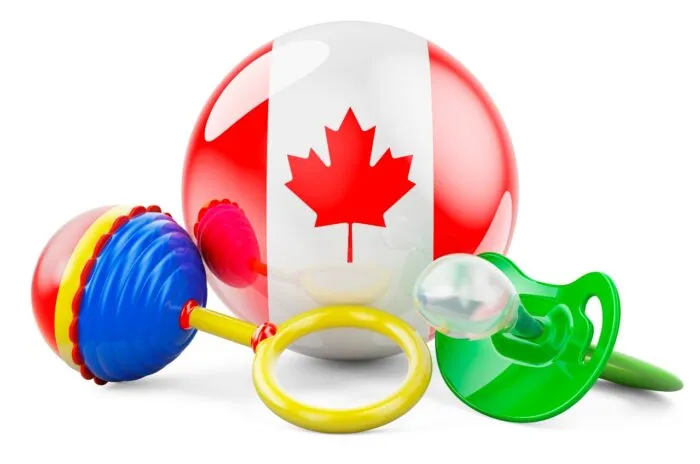
Birth Alerts Manitoba Class Action Lawsuit Overview:
- Who: An Indigenous woman has filed a class action lawsuit against the Manitoba government.
- Why: The woman claims birth alerts, which are done to take a newborn child from a mother seen as potentially unfit, are unlawful and discriminatory.
- Where: The class action lawsuit is filed against the Manitoba government.
An Indigenous woman whose baby was taken from her at its birth in a video seen live on social media has filed a class action lawsuit against the government of Manitoba.
The newborn was taken away from the woman, who is not being identified, by police and social workers due to a birth alert, which flagged her as a potentially unfit mother, CBC reports.
The woman is claiming in her proposed class action lawsuit that birth alerts cause harm to both mother and child, are unlawful and breach charter rights.
Further, birth alerts, which are often issued by social workers, are done without any review or without specific requirements needing to be met, the proposed class action lawsuit argues.
The woman says that, ultimately, birth alerts on Indigenous woman are done on account of “discriminatory and harmful stereotypes about the parenting capabilities of persons of certain backgrounds.”
Incident Streamed Live On Facebook In 2019
A video of the incident was streamed live on Facebook in 2019 and showed the 2-day-old baby being taken away from its crying mother at a hospital in Winnipeg, CBC reports.
According to court documents, the woman had made arrangements prior to the birth to have the baby placed with an aunt and was unaware that she was the subject of a birth alert until police and social workers showed up to take the newborn.
The mother says in her proposed class action lawsuit that she felt “blindsided” and “manipulated” on account of a birth alert being put on her for, she argues, trying to get help prior to the birth, CBC reports.
The child is now reportedly in the care of its aunt, and the mother is able to be a part of its life, according to court documents.
The mother says she decided to file the class action lawsuit after she was approached by other Indigenous mothers who had seen the video and told her they had suffered from similar experiences.
According to government statistics from the time of the video in 2019, about 90% of children in the care of the Manitoba government are Indigenous while one newborn on average was taken away per day due to a birth alert, CBC reports.
Manitoba stopped issuing birth alerts in 2020 after determining the practice discouraged expectant mothers from seeking help before giving birth.
A similar class action lawsuit was filed last year against Her Majesty the Queen in Right of British Columbia by an Indigenous woman claiming birth alerts are unlawful and discriminatory.
How do you feel about the birth alert practice? Let us know in the comments!
Don’t Miss Out!
Check out our list of Class Action Lawsuits and Class Action Settlements you may qualify to join!
Read About More Class Action Lawsuits & Class Action Settlements:
- Birth Alerts are Discriminatory and Target Babies of Indigenous, Disabled, or Racialized Women, a New Class Action Lawsuit Claims
- ‘Illegal and Unconstitutional’ Birth Alerts May Lead To Class Action Lawsuit
- Explosion in Ontario Town Result of Local Authority’s Negligence, Class Action Alleges
- Indigenous Ministries Abuse, Harass, Hold Back Indigenous Workers, Class Action Alleges















2 thoughts onBirth Alert Class Action Claims Practice Unlawful, Discriminatory
I had no idea birth alerts were a thing and I’m applauded, although not surprised because it is the Canadian government. It’s pretty terrible that these women have no clue and are only on those lists because they tried to get help. Social services in my small province aren’t trusted either and my mother has always warned me to be wary of the hospital and them. They talk and if you go in for certain problems at the health centre, go to social services for counselling, , or even if you’ve been a foster kid yourself it’s like you’re put on a list and they’ll likely come back around years and years later to use those as reasons to take your kids. It’s sad that my mother and aunties warned me about this at 14. I wanted counselling and was encouraged to seek it elsewhere.
I have aboriginal in me however; not visioned as such… in 2003 my daughter was taken from the hospital saying I had drugs in my system and all 3 of my children became crown ward.. in 2016 I was notified by the high court that it was by mistake, that there was a criminal case going on with mother risk in Toronto and however; when asked about my daughter taken from hospital social worker said she was unknown to a 3rd child whom after we found out was adopted.. then court came back and told me it had been 10 years they wanted me to know but everything would stay as it was but I can have visitation except to my daughter who was adopted even tho her siblings where still to have contact but family who adopted stop all visitations.. when my oldest daughter got slapped by foster mom she wanted to come home, but they told her she would not get her crown ward money at 18.. and my son has been abused in care and I’m just supposed to suck it all up, how is this fair please help